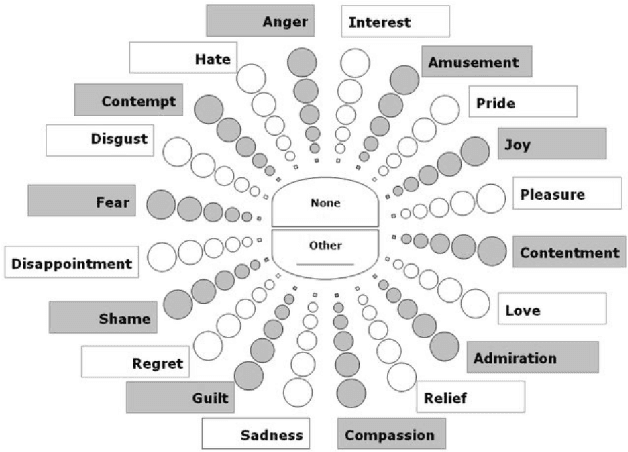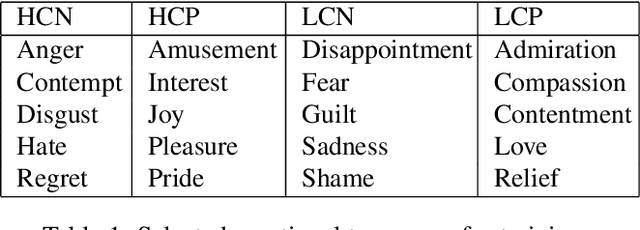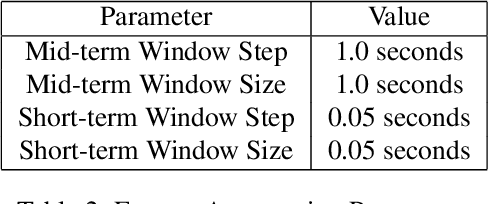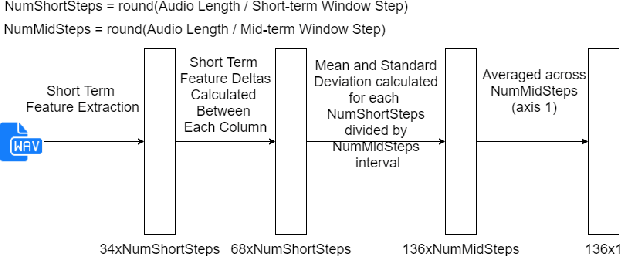Brian Model
Musical Prosody-Driven Emotion Classification: Interpreting Vocalists Portrayal of Emotions Through Machine Learning
Jun 13, 2021



Abstract:The task of classifying emotions within a musical track has received widespread attention within the Music Information Retrieval (MIR) community. Music emotion recognition has traditionally relied on the use of acoustic features, verbal features, and metadata-based filtering. The role of musical prosody remains under-explored despite several studies demonstrating a strong connection between prosody and emotion. In this study, we restrict the input of traditional machine learning algorithms to the features of musical prosody. Furthermore, our proposed approach builds upon the prior by classifying emotions under an expanded emotional taxonomy, using the Geneva Wheel of Emotion. We utilize a methodology for individual data collection from vocalists, and personal ground truth labeling by the artist themselves. We found that traditional machine learning algorithms when limited to the features of musical prosody (1) achieve high accuracies for a single singer, (2) maintain high accuracy when the dataset is expanded to multiple singers, and (3) achieve high accuracies when trained on a reduced subset of the total features.
 Add to Chrome
Add to Chrome Add to Firefox
Add to Firefox Add to Edge
Add to Edge